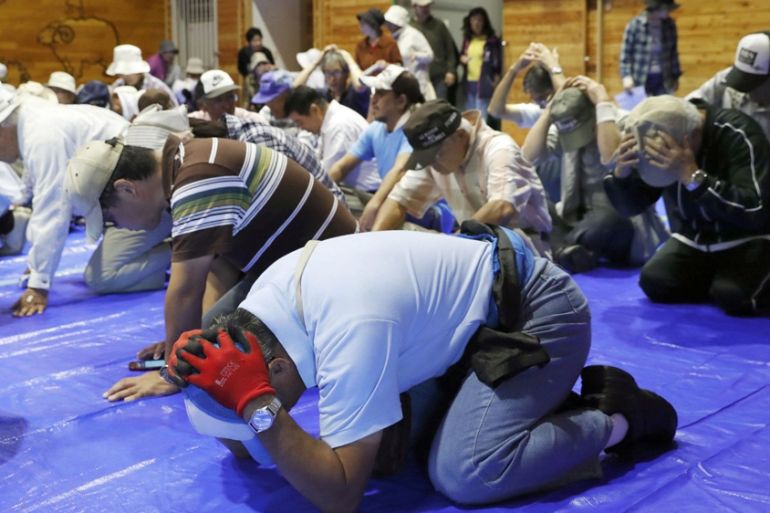Japan to halt missile attack drills after Trump-Kim summit
Japan began evacuation drills after North Korea launched two missiles that flew over Japan in 2017.

Japan has decided to halt drills to prepare for a North Korean missile attack, after a landmark summit between US President Donald Trump and North Korean leader Kim Jong-un eased tension, Kyodo news agency reported on Thursday.
A Japanese senior official told Reuters they would make an announcement on Friday concerning the drills.
Trump met Kim on June 12 in Singapore, where the North Korean leader committed to “work towards complete denuclearisation of the Korean Peninsula”, while Trump said he would end what he called “provocative” US-South Korean military exercises.
|
|
Japan welcomed the summit as a first step towards the denuclearisation of North Korea, but also said the US-South Korean exercises were a vital deterrent to North Korean threats.
North Korea last year launched two missiles that flew over Japan. It also conducted its sixth nuclear test.
In January, Japan’s capital of Tokyo held its first evacuation drill, and smaller Japanese towns and villages have conducted similar exercises as North Korea pushed ahead with its missile and nuclear weapons programmes.
Kyodo said there were plans for evacuation drills this year in nine prefectures.
An official in Yaita, in northern Japan, told Reuters that Tochigi Prefecture, where it is located, had notified the city that the central government had decided to halt the planned drill “taking into account the international situation”.
Kyodo said several other prefectures had also been notified of the imminent decision to halt the drills.
Prime Minister Shinzo Abe is eyeing his own summit with Kim to tackle the matter of Japanese citizens kidnapped by North Korean agents decades ago.
In 2002, North Korea admitted that its agents had kidnapped 13 Japanese in the 1970s and 1980s.
Japan says 17 of its citizens were abducted, five of whom were repatriated.
North Korea has said eight are dead, while another four never entered the country. Abe has made the issue a pillar of his political career and vowed not to rest until all the abductees come home.